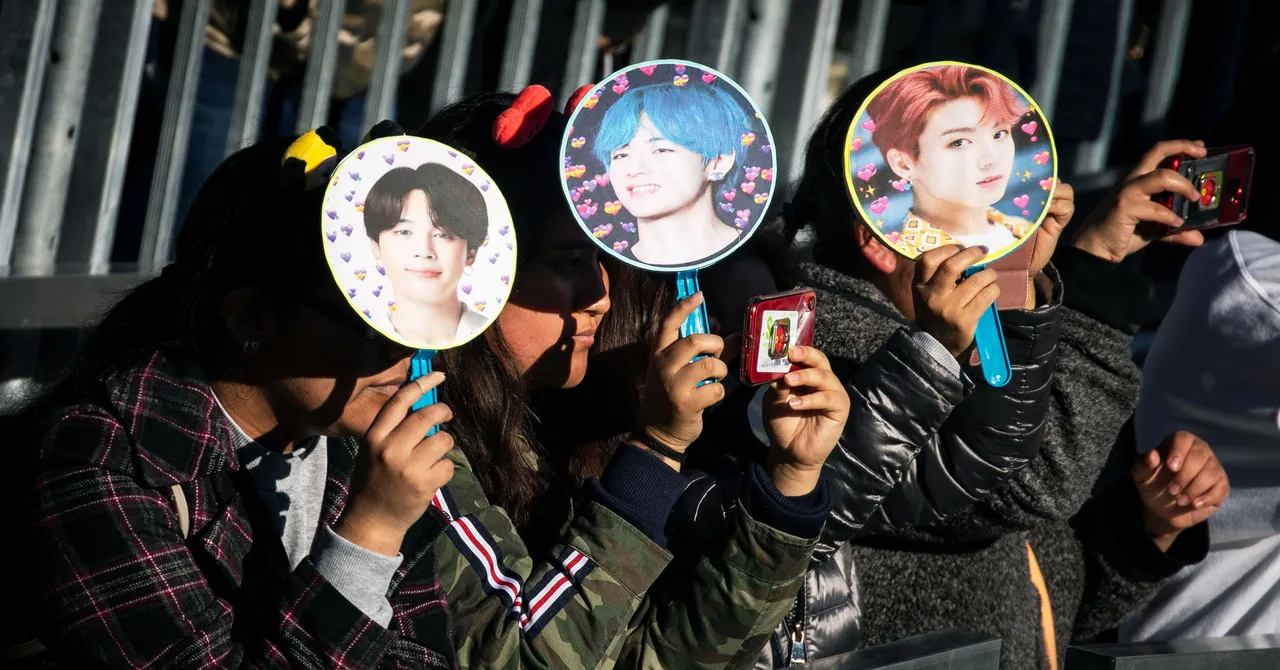Smashing – For the third time this year, a major voting app has completely collapsed under the sheer force of K-pop fans mobilizing for their favorite artists. What started as a simple online poll about “Best Summer Songs” turned into another case study of how K-pop fandoms can break the internet when they unite behind a common cause.
The voting app crash phenomenon has become so predictable that tech analysts now watch these events with equal parts amusement and professional curiosity. Server engineers are learning the hard way that no amount of cloud computing preparation can withstand the tsunami-like traffic generated by millions of passionate K-pop fans clicking simultaneously across continents.
Anatomy of a Digital Stampede
The latest voting app crash followed a familiar pattern that digital anthropologists have come to recognize. It began when several large K-pop fan accounts on Twitter noticed their favorite group was trailing in what appeared to be an unimportant industry poll. Within hours, fanbase leaders had organized voting squads across multiple time zones, complete with step-by-step tutorials and scheduled voting sessions.
What makes K-pop fan voting different from regular online polls is the military-like precision of these operations. Fans create backup accounts in advance, use VPNs to circumvent vote limits, and coordinate through encrypted chat groups. The voting app’s engineers reported seeing traffic spike from 50,000 to 8 million requests per minute in under an hour – digital infrastructure’s equivalent of a Category 5 hurricane making landfall.
Why K-pop Fans Treat Voting Like Warfare
To understand the voting app crash phenomenon, one must appreciate how K-pop culture transforms casual listeners into digital soldiers. In the hyper-competitive K-pop industry, every award and ranking carries immense weight for artists’ careers. Fans internalize this and view voting not as casual participation but as frontline duty to support their idols.
Music industry analysts note that K-pop companies actively cultivate this mentality through “fan missions” and real-time updates about voting progress. The most dedicated fans will set alarms for 3 AM voting sessions or skip work/school during crucial voting periods. This creates perfect conditions for voting app crashes when multiple fandoms mobilize simultaneously.
The Economic Impact of Fan-Driven Server Crashes
Each voting app crash carries significant financial consequences that extend beyond temporary service outages. App developers lose advertising revenue during downtime and face costly emergency server upgrades. Meanwhile, the publicity from these crashes often benefits the K-pop groups involved, creating a perverse incentive structure where digital chaos translates to career advancement.
Tech companies are now investing in “K-pop proof” infrastructure, with some voting platforms implementing blockchain verification or AI-driven traffic shaping specifically designed to withstand fan voting surges. However, as one network engineer admitted, “There’s no true preparation for the energy of millions of teenagers fighting for their favorite band’s honor.”
How Voting Apps Try (and Fail) to Adapt
Following repeated voting app crashes, developers have attempted various countermeasures with limited success. Some implemented CAPTCHA systems, only to find K-pop fans collectively solving them faster than bots could. Others tried limiting votes per IP address, unaware of how many fans would simply switch to mobile data or public WiFi networks.
The most effective solution so far has been “vote cooling” systems that gradually slow down voting speeds during traffic surges. However, this often leads to accusations of vote suppression from passionate fans. One app developer confessed they now monitor K-pop comeback schedules to anticipate when to bolster their servers preemptively.
When Fan Passion Crosses Into Digital Activism
The voting app crash phenomenon represents just one facet of K-pop fans’ growing influence in digital spaces. These same organizational skills have been deployed for social causes, from matching million-dollar donations to political campaigns. What makes the voting incidents particularly fascinating is how they represent pure, undiluted fandom energy with no larger agenda beyond supporting beloved artists.
Sociologists suggest these voting crusades fulfill deeper psychological needs for community and purpose, especially among younger demographics. The shared mission of “breaking the app” creates temporary social hierarchies where voting contribution becomes a measure of dedication and status within fan communities.
The Arms Race Between Fans and Developers
Each new voting app crash leads to technological innovation on both sides. Fans constantly develop new methods to maximize votes, from automated scripts disguised as human behavior to sophisticated traffic distribution patterns that avoid detection. Meanwhile, developers implement increasingly complex systems to distinguish “organic” voting from coordinated campaigns.
This digital arms race has given rise to a cottage industry of voting strategy guides, fan-made voting apps that simulate traffic loads, and even paid services that guarantee certain vote totals. Some entertainment companies now unofficially consult with fanbase leaders about voting timelines to help platforms prepare for impending traffic tsunamis.
What the Future Holds for Fan-Driven Digital Disruptions
As K-pop’s global influence grows, voting app crashes will likely become more frequent and severe. Emerging technologies like 5G networks and improved translation tools will only make international fan coordination easier. Some tech futurists predict we may soon see the first fan-caused regional internet outage during particularly intense voting periods.
Music and technology analysts agree these incidents represent a fundamental shift in how entertainment consumption works in the digital age. The lines between fan, activist, and hacker continue to blur as fanbases realize their collective power to shape not just music charts but digital infrastructure itself. One thing remains certain: app developers will never look at teenage fangirls the same way again.





